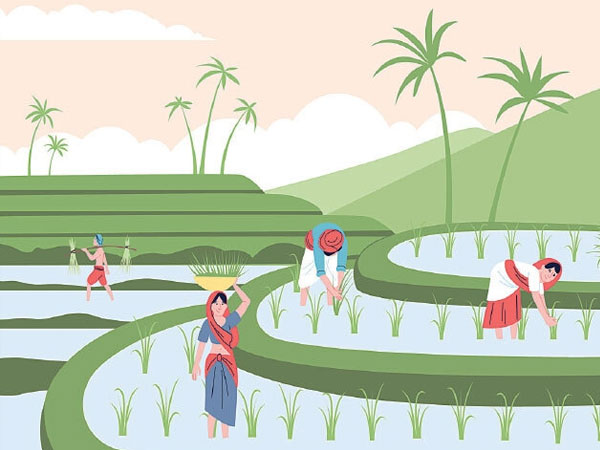 The Vietnamese Ministry of Agriculture and Rural Development plans to spend US$375 million supporting low-emission rice production across 12 provinces and cities in the Mekong Delta from 2026 to 2031, as outlined in a master plan approved at the end of last year.
The Vietnamese Ministry of Agriculture and Rural Development plans to spend US$375 million supporting low-emission rice production across 12 provinces and cities in the Mekong Delta from 2026 to 2031, as outlined in a master plan approved at the end of last year.
The ministry announced the planned investment at a conference in the Mekong Delta city of Can Tho on Tuesday.
The fund will be spent on developing one million hectares of high-quality, low-emission rice linked with green growth in the Mekong Delta region by 2030.
Component 1 of the project, totaling $350 million, will finance essential public infrastructure.
This component aims to bolster the low-emission rice value chain, spanning from initial production to processing and marketing, targeting an area of 500,000 hectares across 12 provinces and cities in the Mekong Delta.
Investments will be directed toward upgrading irrigation systems, enhancing transportation networks, including the construction or upgrading of roads and bridges in supported production areas, and facilitating online and e-commerce platforms, as well as supporting green energy infrastructure.
The remaining $25 million will be assigned to Component 2, focusing on technical development and transfer, along with Component 3, covering project management expenses.
The overarching goal of the project is to enhance the value and sustainable development of Vietnam's rice industry, thereby elevating incomes for rice farmers, safeguarding the environment, and aiding in the fulfillment of the country's environmental obligations.
As part of the project, it is anticipated that greenhouse gas emissions stemming from rice farming will decrease over 10 percent.
It is projected that low-emission, high-quality rice will constitute more than 20 percent of the total rice exports from the entire specialized rice farming region.
Minister of Agriculture and Rural Development Le Minh Hoan said upon the approval of the project at the end of last year that its implementation will involve experimental trials of new policies, according to the Vietnam News Agency.
These policies include the payment of carbon credits based on performance, a focus on low-emission production linked to green growth, and the development of an agricultural economy with a circular approach.
At the 26th United Nations Climate Change Conference (COP26) in the UK in 2021, Vietnam committed to achieving net-zero emissions by 2050, which presents challenges for the country’s rice industry and necessitates change, Hoan emphasized.
Carolyn Turk, country director of the World Bank in Vietnam, highlighted that the execution of the project in the Mekong Delta region, considered Vietnam’s rice bowl, will enhance the Southeast Asian nation’s rice production.
She expressed confidence that the project will effectively support Vietnamese farmers and agriculture, noting that the application of science and technology not only helps reduce greenhouse gas emissions but also boosts productivity, lowers input costs, and will ultimately lead to a 30-percent drop in profits for farmers.
This, in turn, will assist Vietnam in achieving its environmental protection goals, improving farmers’ livelihoods, and enhancing food security.














© Copyright 2025 The SSResource Media.
All rights reserved.